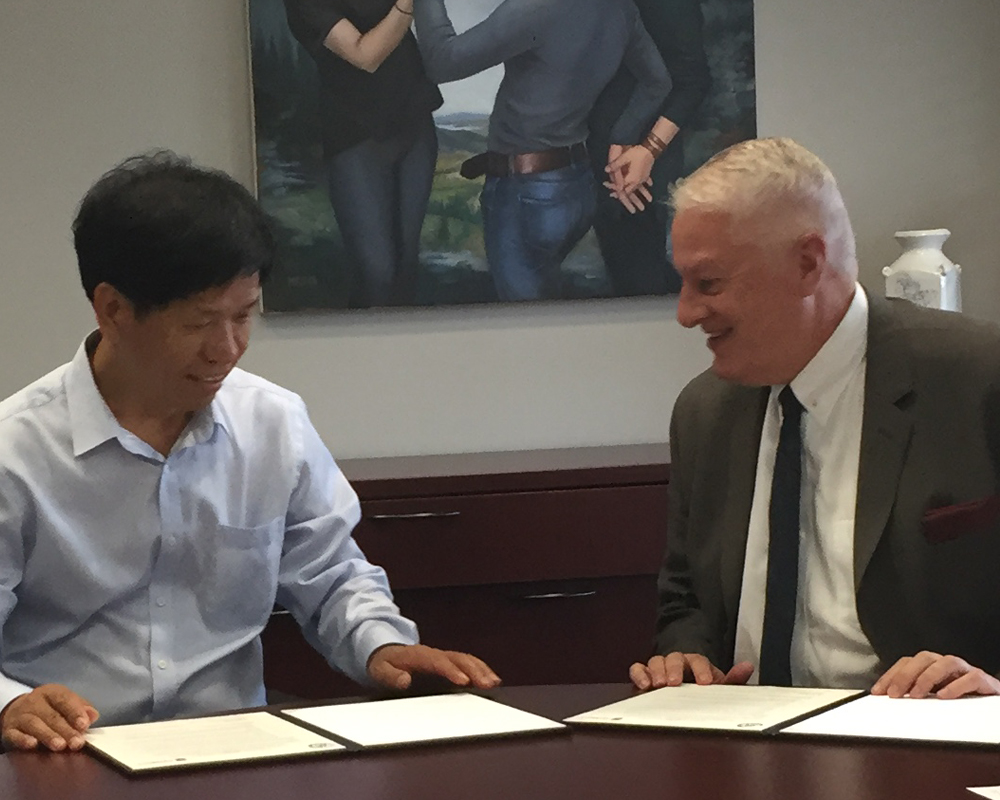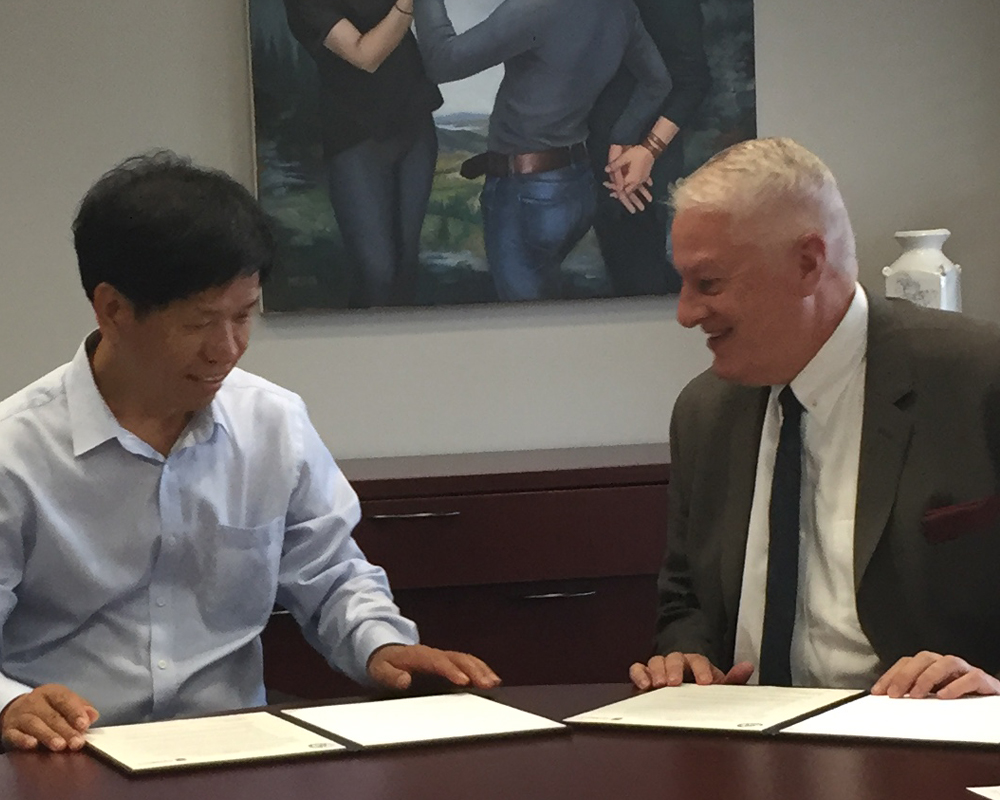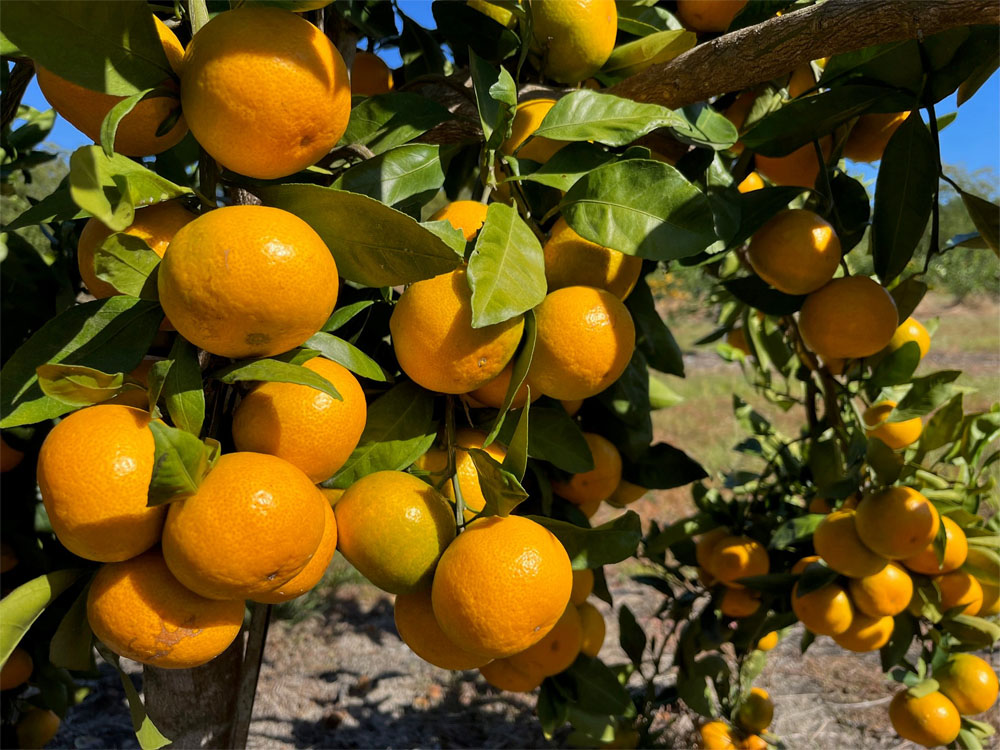An animal and dairy science class at the University of Georgia College of Agricultural and Environmental Sciences (CAES) is gaining international experience by establishing a virtual collaboration with the Chinese Academy of Agricultural Sciences in the Institute of Animal Science (CAAS-IAS) in Beijing, China. This intercultural partnership allows students and faculty to sustain a joint scientific effort while travel is largely suspended due to COVID-19.
Todd Callaway, now an associate professor of animal and dairy science at UGA, traveled to Beijing in 2017 to present at the American Dairy Science Association meeting as an employee of the U.S. Department of Agriculture’s Agricultural Research Service. There he formed a working relationship with CAAS professor Dengpan Bu and began to formulate ideas for a collaborative project in teaching and research between UGA and the China-based academy.
After joining UGA’s faculty later the same year, Callaway continued working with Bu and the university to initiate plans and resources for a joint research and education program.
Just over two years after signing a Memorandum of Understanding with CAAS-IAS, the determined pair has begun to put the plan into motion.
“Our plan is to eventually expand this relationship to include undergraduate and graduate student exchanges,” said Callaway. “Like many scientific relationships, it began with meeting someone face-to-face and developing trust over time as we have worked on several papers together. The organic nature of a relationship like this is key to a successful joint program.”
With an experimental template finalized and implemented at the beginning of the fall semester, the weekly journal meetings between the two agricultural science classes allow students to improve their scientific and cultural literacy while expanding their knowledge of global agriculture.
“The UGA students reacted very positively and excitedly at the chance to have a unique journal club and to not just learn science, but learn about the culture of another nation,” said Callaway. “The opportunity to expand our graduate students’ education beyond the norms is highly beneficial to them, and they recognize this.”
The focus on global collaboration and cooperation allows the students to expand their professional networks at an early stage in their scientific careers beyond their normal academic circle.
Partnerships among complementary programs in separate institutions provide an opportunity for enhanced learning and growth for students and faculty outside of the pre-established environment. New structural limitations enforced by COVID-19 policies have forced universities to strengthen the focus on global learning in a virtual environment, allowing the creation of new methods and tactics to promote diversity among education.
“Even without COVID, we know that in-person international education is not always accessible to all students due to financial and other barriers,” said Victoria McMaken, coordinator of international programs within CAES. “Exchange programs like Dr. Callaway’s joint journal club are essential in order to provide all students with opportunities to learn how to navigate other cultures and work in diverse teams without having to physically travel abroad.”
For more information about UGA’s Department of Animal and Dairy Science, go to animaldairy.uga.edu, and for resources on international programs, visit caes.uga.edu/departments/international-programs.





